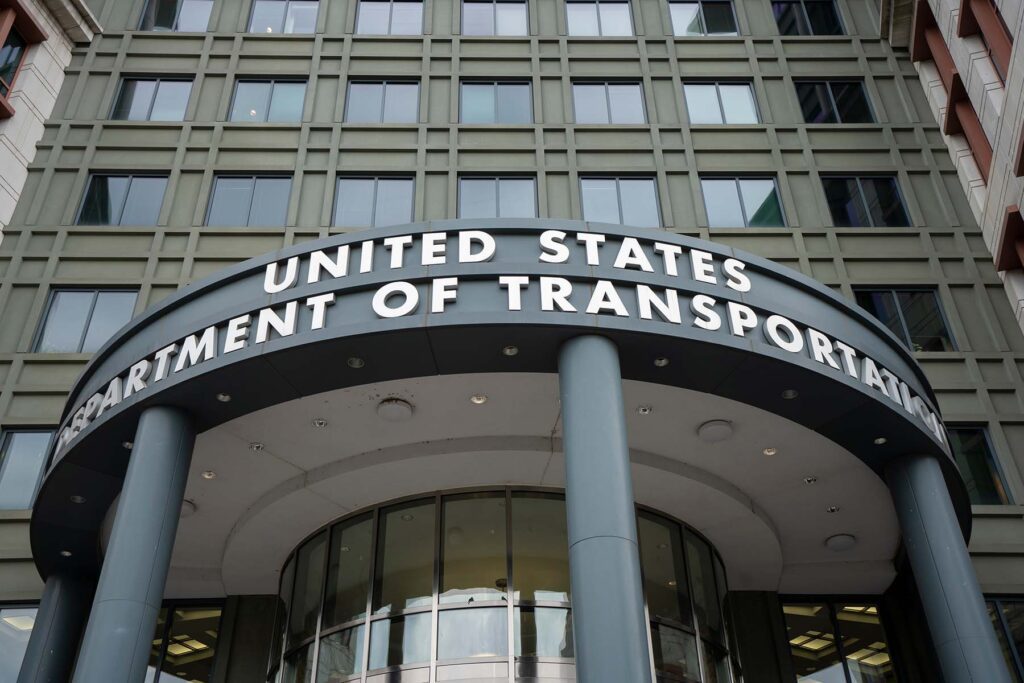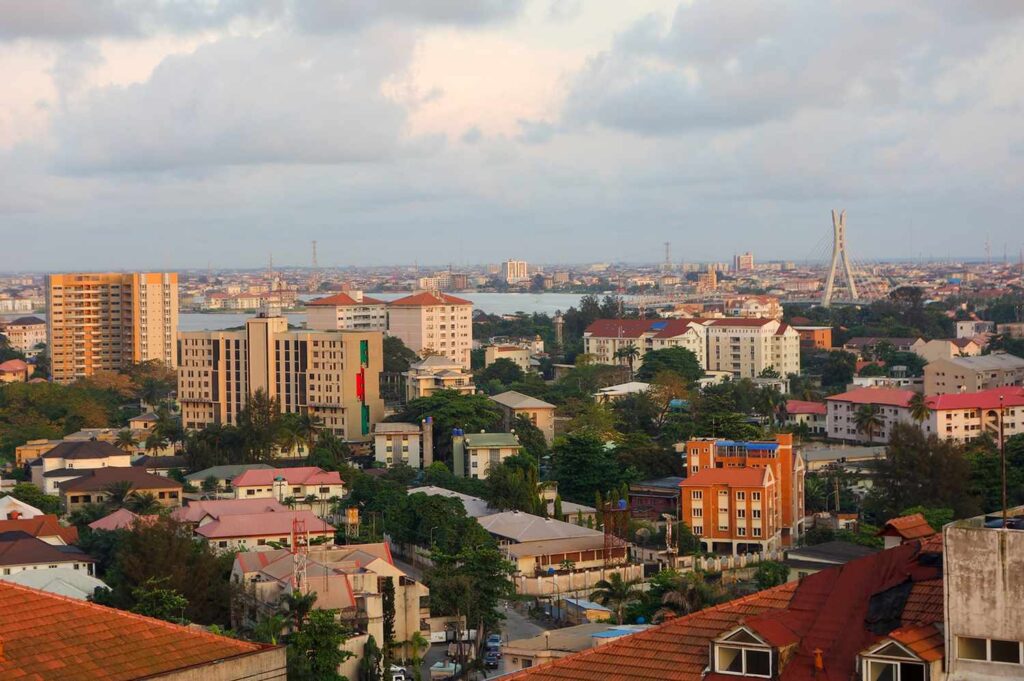
Elon Musk, as one of the co-heads of President-elect Donald Trump’s “Department of Government Efficiency,” has sworn to slash government spending.
It’s unclear what cuts DOGE will recommend and travel costs haven’t gotten much of the attention. But the richest man in the world could have an impact on the Department of Transportation and the Federal Aviation Administration.
Transportation has historically been one of the more bipartisan issues in Congress. For example, Congress overwhelmingly voted in favor of this past year’s FAA Reauthorization Bill, which included provisions for major consumer protections like automatic refunds and free family seating. And both Republicans and Democrats get the need for safety.
Each year, Congress approves the budget for the DOT, which also includes the FAA. The DOT has nearly 57,000 employees and the FAA has around 45,000. One issue that has bipartisan and industry support is modernizing the FAA’s infrastructure, which came under scrutiny when the agency had to issue a ground stop due to a computer outage in 2023.
But there could be conflict between Musk and the FAA, whether it’s related to government spending or the agency’s many regulations.
DOGE’s Philosophy
It is unclear how much authority DOGE would have since it is not an official cabinet department.
The House is creating a new subcommittee called Delivering on Government Efficiency — helmed by Rep. Marjorie Taylor Greene — that would work with Musk and co-chair Vivek Ramaswamy on identifying regulations and government jobs to cut.
In an op-ed published in The Wall Street Journal on Wednesday, Musk and Ramaswamy said the job cuts should be at least proportional to the number of federal regulations that are scrapped. “A drastic reduction in federal regulations provides sound industrial logic for mass head-count reductions across the federal bureaucracy,” Musk and Ramaswamy wrote in the WSJ. Fewer regulations require fewer employees, they argue.
They also pointed to potentially using incentives for early retirement or voluntary severance payments to reduce the federal workforce.
For the DOT, it is unclear if this could have an effect on consumer regulations. During Trump’s first term, he cut certain Obama-era rules, such as airline pricing transparency on baggage fees.
The Biden administration took a stricter stance on consumer regulations in the industry, putting forth rules on automatic refunds, junk fees, family seating and accommodations for passengers with disabilities. The DOT under Biden also partnered with 18 state attorneys general to investigate passenger complaints and has charged carriers heftier fines for consumer rights violations.
For example, the DOT fined Southwest $140 million for its 2022 holiday meltdown and fined American $50 million for violating disability rules. The department is currently investigating Delta for its meltdown following the CrowdStrike outage in July.
Industry Pushback
These policies have drawn the ire of airline executives. Delta CEO Ed Bastian told a group of reporters on Wednesday that he believed the Trump administration’s approach to regulation could be a “breath of fresh air.” He added that there had been “a level of overreach” during the past four years.
Under Trump, some of these Biden-era regulations could be cut, such as junk fee disclosures, which the airline industry has been against and are currently blocked.
So far, Musk has publicly expressed more interest in loosening certain regulations related to space for SpaceX. Senator Ted Cruz, who is expected to become the chair of the Senate Commerce Committee in January, has also expressed support for reevaluating certain regulations on space.
“Sen. Cruz will continue to advocate for policies that support innovation in space travel and minimize unnecessary bureaucratic interference and delays,” a spokesperson for Cruz told Skift.
Rep. Rick Crawford, who is running to be chair of the House Transportation Committee, told Politico that overhauling the FAA’s policies on space was one of his top priorities.
And even though some airline executives have been critical of the Biden administration’s approach to consumer regulation, most initiatives have enjoyed broad support in Congress.
DOT Responds
Transportation Secretary Pete Buttigieg fired back at some of the criticism during a Thanksgiving travel news conference in Washington, D.C. on Wednesday.
“I know that some airline CEOs have expressed hopes that the next administration will be less passenger-friendly and more corporate-friendly than this administration,” Buttigieg said during the conference, according to the AP. “The passenger protections that we have put in place deservedly enjoy broad public, bipartisan support. I just don’t run into a lot of people who are against the idea that you ought to get an automatic refund without any hassle, for example.”
Trump’s pick for Transportation Secretary, Fox Business host and former Rep. Sean Duffy, has been involved with the Partnership for Fair and Open Skies, a coalition of U.S. airlines and industry unions who oppose the expansion of foreign carriers in the U.S.
One of Duffy’s House colleagues told Politico that he believes Duffy would slash regulations to speed along certain projects, including those for Musk’s Tesla and SpaceX.
Musk and the FAA
The FAA is one of the most rigid agencies in the federal government — it can take years for new technologies to be approved. And it’s had run-ins with Musk related to Space X.
In September, the FAA fined SpaceX $633,009 for violating the terms of its launch licenses on two separate occasions. Musk has previously said he would sue the FAA for regulatory overreach.
In December 2020, SpaceX went ahead with a launch even after the FAA’s weather models showed risk to nearby residents if the rocket were to explode, according to a report The Verge published in June 2021. It did explode, but there was no reported damage and the FAA did not sanction SpaceX.
Musk has been vocal about his issues with the agency, going as far as to call for FAA chief Mike Whitaker to resign. Whitaker, who was confirmed unanimously by the Senate, was appointed by President Joe Biden and his current term ends in 2028.
Amid Boeing’s botched Starliner launch in September, Musk said the FAA should punish Boeing rather than charge “petty” fines to SpaceX, according to Business Insider.
Whitaker pushed back on this notion during a congressional hearing in September, saying that Boeing and SpaceX should have the same oversight.
“They’ve [SpaceX] been around 20 years, and I think they need to operate at the highest level of safety and that includes adopting (a safety management system) program, that includes having a whistleblower program,” Whitaker said during a House hearing, according to Reuters.
A Breakdown of the DOT’s Requested Budget for 2025
Here are some highlights of the DOT’s requested budget for 2025, which included guaranteed appropriations from the 2021 Bipartisan Infrastructure Law
- Total budget: $146.2 billion
- FAA’s total budget: $26.8 billion
- Modernizing the National Airspace System: $3.6 billion
- Operations, includes promoting aviation safety, efficiency, personnel costs and telecommunications: $13.6 billion
- Office of Aviation Safety: $1.9 billion
- Air traffic controller hiring: $43 million
- Office of the Secretary (oversees much of the DOT’s enforcement for consumer regulations): $1.8 billion
- DOT’s office of general counsel to hire for four more positions and strengthen the Office of Aviation Consumer Protection: $400,000
Airlines Sector Stock Index Performance Year-to-Date
What am I looking at? The performance of airline sector stocks within the ST200. The index includes companies publicly traded across global markets including network carriers, low-cost carriers, and other related companies.
The Skift Travel 200 (ST200) combines the financial performance of nearly 200 travel companies worth more than a trillion dollars into a single number. See more airlines sector financial performance.
Read the full methodology behind the Skift Travel 200.


